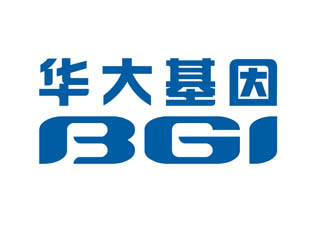
AsianScientist (Apr. 16, 2013) – Prior to meeting BGI Executive Director Dr. Wang Jun, I had been fascinated by the rise of BGI, the Chinese world leader in human, plant, and animal genetics research.
I finally had the opportunity to have my questions answered on meeting the 37-year-old executive director at the Plant and Animal Genome Conference (PAG) Asia that took place from March 17-19 in Singapore.
BGI began in 1999 as China’s representative to the International Human Genome Project, where it was responsible for one percent of the output. Since then, it has grown into a genomics powerhouse with 137 Illumina HiSeq 2000 sequencers and the combined horsepower of several individual supercomputing centers. Its commercial arm provides a wide array of services, ranging from next generation sequencing to genotyping, sanger sequencing and proteomics.
The institute is also raising some eyebrows with its recent choice of projects. One example is the BGI Cognitive Genetics Project, which is collecting samples from volunteers to study the genetic basis for intelligence. Another significant event was the launch of the ‘big data’ journal, GigaScience, a new combined database and journal focused on the publication and hosting of large scale-data from BGI and open-access publisher BioMedCentral, which will help BGI churn out research papers over the coming years.

I ask Dr. Wang where he sees BGI heading in the next five years, and as expected, his vision was to the sky and beyond.
“We currently have 4,000 plus employees. BGI is divided into several parts. The first is BGI Research, which is doing a lot of academic non-profit research. Then we have BGI Tech, which is doing a lot of genomics and omics services. Then we have BGI healthcare, which is trying to deliver healthcare solutions to society. BGI agriculture develops new breeds. We recently started a project to treat waste water to provide environmental protection. Those are the major parts,” he says.
Just last month, BGI Health announced that it had established a partnership with the Dubai-based biotech, Eastern Biotech & Life Sciences, to introduce a non-invasive fetal trisomy (NIFTY) test to countries in the Middle East. The NIFTY test detects fetal chromosomal abnormalities using cell-free fetal DNA in the maternal blood, and can detect Down’s syndrome with an accuracy of 99.9 percent as early as at 12 weeks of pregnancy, the company says.
“In healthcare, we are introducing prenatal diagnosis to help people have healthy babies. We are also developing personalized cancer treatments, and treatments for complex metabolic disorders combined with personalized genomics,” Dr. Wang explains.
A highlight in BGI’s recent history is a collaboration established with the Bill and Melinda Gates Foundation in September last year, which will focus on sequencing agricultural organisms and infectious diseases.
“Bill Gates shares the same ambition as BGI, especially for agriculture and infectious diseases in Asia and Africa. We share a common vision. We met Bill Gates several times, and we think that with the combined strengths of both organizations we can do a lot for Africa.”
BGI’s rapid expansion has been in part due to government grants and loans, such as a US$1.5 billion line of credit over ten years from the China Development Bank. However, Dr. Wang says BGI will remain a privately owned entity. Just last month, BGI completed a new milestone, acquiring the Mountain View, California-based Complete Genomics Inc. whole human genomic sequencing-technology company for US$118 million.
“Complete Genomics is the first acquisition of BGI. The Wall Street Journal says it is the first Chinese firm to acquire a U.S. public company,” he says with a touch of fatherly pride.












